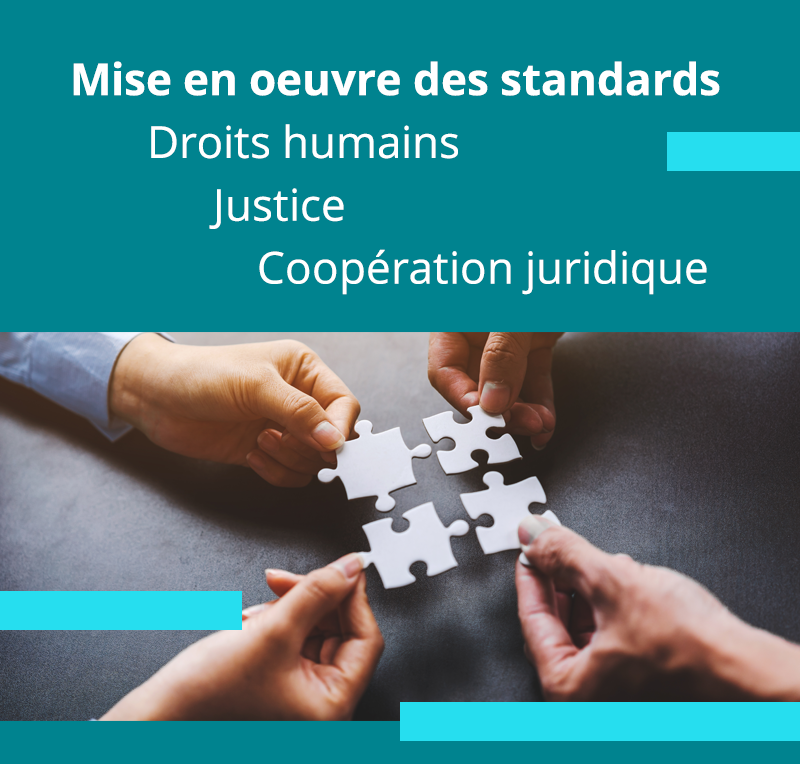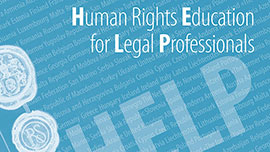Council of Europe’s Human Rights Education for Legal Professionals (HELP) Programme

Interview with Mr Jim MURDOCH, Professor of Public Law at the University of Glasgow, former Head of the School of Law. His research interests are in domestic and European human rights law. In the interview below, Mr Murdoch refers to the Council of Europe’s Human Rights Education for Legal Professionals (HELP) Programme.
October 2015
What do you predict will be the big challenges concerning legal education? What are the most significant trends and evolutions in legal education in the recent years?
Higher education is changing. The future generation of lawyers, judges and prosecutors will be better prepared in keeping up to date with legal developments in European and domestic law. The gap between 'academic' and 'practice' will narrow as law schools move towards equipping their students for the professional world through an increased emphasis upon research and problem-solving. This is positive, for more interactive approaches to legal education lead in turn to deeper learning and to more confident learners. In turn, training legal professionals will have to react to new learning and teaching strategies that 'trainees' have encountered in the early stages of their legal training in law schools. Didactic training methods with ‘the speaker as the unchallenged expert' will be under significant challenge.
Modern technology: is it a big asset or a necessary evil?
Certainly, more asset than evil! In a remarkably short period of time, technology has opened up access to knowledge and information to an almost unimaginable extent. Cases, statutes and legal codes, constitutions, 'blogs', Wikipedia articles, learned treatises, etc. - all are available at a click of a button on a mouse. This is certainly true of European human rights materials. Much is also in translation, making the case law of the Strasbourg Court much more accessible.
While this is of course positive, there is one inherent drawback. In the past, much of this information was 'filtered': 'experts' selected what mattered from what was merely illustrative or even wrong. Sorting out the wheat from the chaff was traditionally what lecturers, textbook authors and trainers did to help learners comprehend key underlying principles. Now learners can by-pass 'experts', or select other opinions. This is valuable, but learners may on occasion feel swamped with so much information, and with this comes a danger that they may lose confidence in their ability to order and to make sense of all this newly-available material.
What is the added value of the HELP programme? What does it teach?
Practical guidance is crucial for a working awareness of the European Convention on Human Rights and practical assistance in applying its requirements at domestic level.
How does it teach?
Interactively, flexibly, and creatively.
Why does it teach? And who does it teach? Do you believe the HELP Programme could extend its scope to Human Rights training for other categories of professionals?
HELP is of real value to all legal practitioners (judges, prosecutors and legal representatives) and all others who have a responsibility in criminal justice delivery (police, prosecutors and social workers) – all those who are at the front-line of defending and upholding the rights of the 800 million or so people who live in Europe. Helping ensure that Europe has the most effective system for the protection of human rights is what HELP is all about. But HELP can also be of use in training law students - the next generations of lawyers. Its innovative material provides a fresh and informed approach to human rights education, complementing what is offered in the lecture theatre.
What is different about teaching judges, prosecutors and lawyers?
The challenge facing trainers of such audiences is not only to help ensure an understanding of the Convention, but ensuring that the audience also commits itself to the underlying values and principles. Changing attitudes and challenging unstated personal beliefs will be crucial to successful domestic implementation of human rights guarantees. This is not easy, but it is worthwhile.




